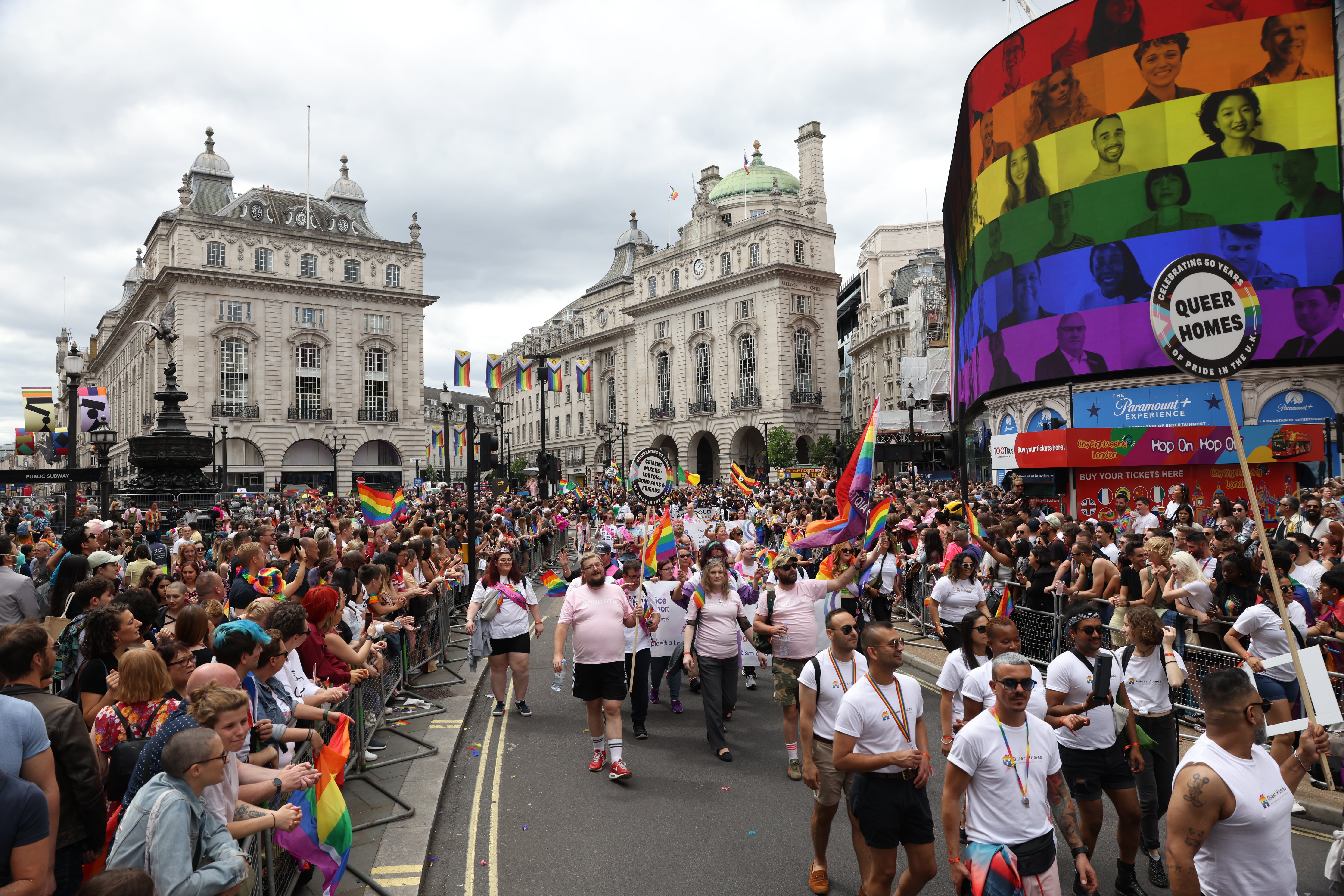The genius of Pride lies in the simplicity of the idea. When the UK’s first Gay Pride rally was held in London 50 years ago this month, people who rejected the heterosexual norm felt that they were expected to be ashamed of who they were. So they asserted their pride in themselves.
It was a hugely important step in the long metaphorical march towards equality of respect, and one which The Independent is in turn proud to support today.
That first rally was held five years after male homosexuality was partially decriminalised, in recognition that legal changes had to be accompanied by changes in popular attitudes if people were to feel equal. Those changes, to people’s views and to the law, did happen. Peter Tatchell, one of the marchers in 1972, has reflected in these pages: “Although there remain many injustices to overcome, our community has made huge strides towards freedom over the last five decades.” Those early Pride marches, visible celebrations of difference, helped to accelerate them, but looking back over the past half-century the rate of progress sometimes seems awfully slow. As Mr Tatchell writes: “None of these gains has been given to us on a plate. Every advance has been the hard-won result of determined campaigning. It took us 34 years to win an equal age of consent and 43 years to win marriage equality!”
Alongside victories to celebrate, there are new battles to fight, and the contours of inequality and oppression become ever more complicated as the old legal battles are won. Questions of trans equality sometimes cut across the settled assumptions of older gay rights activists as well as those of feminists. Simply asserting the right of everyone to be proud of who they are is not a magic formula for resolving these contradictions, but it is a start. The Independent, as a young and optimistic news organisation that was founded 14 years after that first Pride rally, believes that these challenges will be overcome.
If anything, we are less optimistic about the prospects for changing deep-seated prejudice against LGBT+ people in schools, where the problems are not the law or the attitudes of teachers or school authorities, but the often half-hidden culture of young people themselves. As Harriet Williamson writes, the experience of school for young people not yet sure of their sexuality can be miserable, oppressive and mentally unhealthy.
To keep up to speed with all the latest opinions and comment sign up to our free weekly Voices Dispatches newsletter by clicking here
Again, celebrating Pride is not enough, but it is a start. We hope that the great strides in shifting the assumptions of popular culture – resisted at every step by people who worry about “political correctness gone mad”, but almost instantly forgotten once the step forward has been taken – will dissolve some of the remaining mental chains of bigotry in rather shorter order than the next 50 years.
Ultimately, the changes in attitudes in the recent past inspire us with confidence that further progress will be made quickly. Once the process of change begins, it can find allies in unlikely places. It was a Labour government that made the breakthrough of civil partnerships, but it was David Cameron’s Conservatives who completed the journey to equal marriage. As Khakan Qureshi writes movingly, even a socially conservative Muslim such as his father became an LGBT+ supporter.
One by one, minds are changed by the simple demand for equality of respect. Let everyone be proud of who they are.




Join our commenting forum
Join thought-provoking conversations, follow other Independent readers and see their replies
Comments